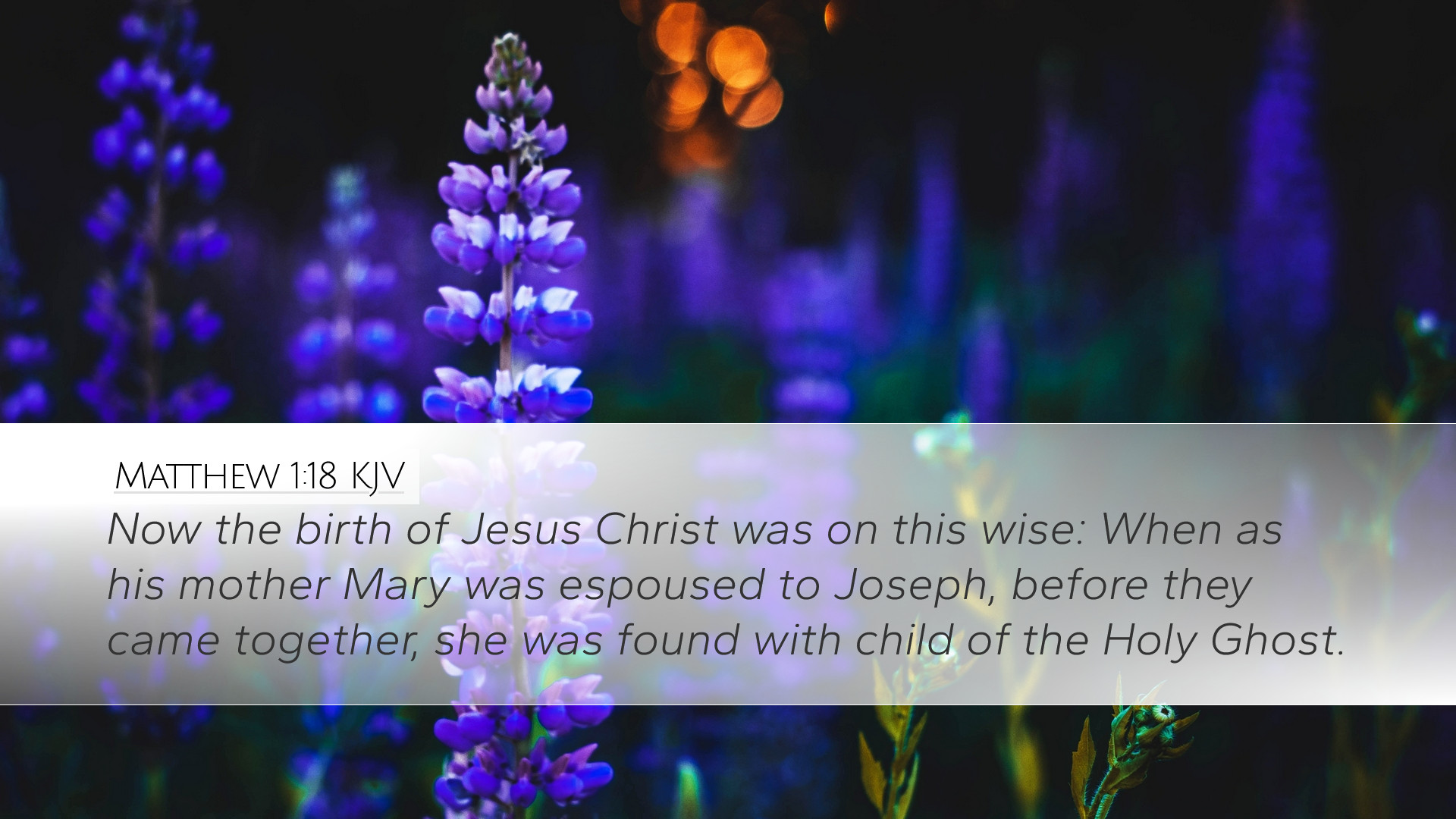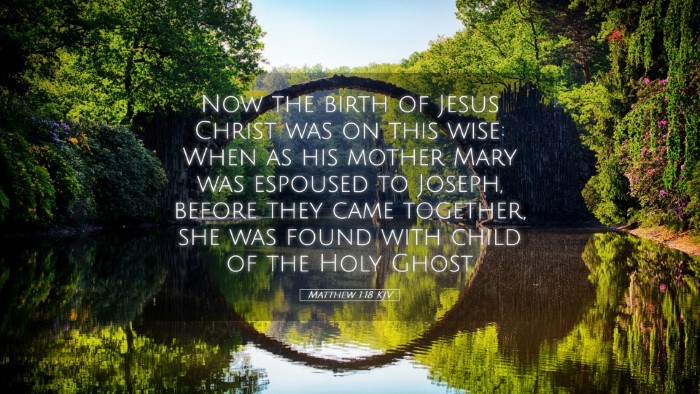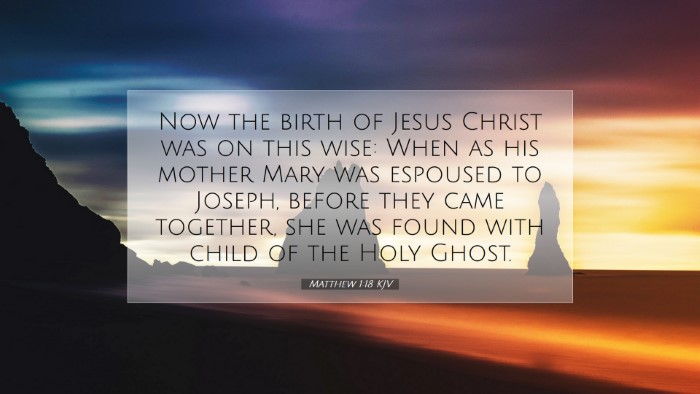Commentary on Matthew 1:18
Introduction
Matthew 1:18 introduces the birth of Jesus Christ, framing this pivotal moment within a narrative of divine intervention and fulfillment of prophecy. This verse is foundational for understanding the incarnation and the virgin birth, raising essential theological themes and implications that resonate throughout Christian doctrine.
Text of Matthew 1:18
"Now the birth of Jesus Christ was on this wise: When as his mother Mary was espoused to Joseph, before they came together, she was found with child of the Holy Ghost."
Exegesis and Analysis
The Context of the Birth
Matthew Henry: Begins by emphasizing the “wise” manner of Christ’s birth. The term indicates not only the sequence of events but the divine orchestration involved. In the midst of ordinary human affairs—betrothal, potential scandal—God intervenes miraculously.
Albert Barnes: Notes the cultural context of espousal in ancient Jewish custom, which was legally binding and vital for understanding Joseph's dilemma upon discovering Mary’s condition. He highlights that the espousal phase had the exclusivity of marriage without the consummation, intensifying the drama of the situation.
The Role of Mary
Adam Clarke: Contemplates the character of Mary, who is described as a virtuous and faithful young woman. Clarke reflects on her potential emotional and social turmoil—her purity seemingly compromised. He underlines the grace found in her acceptance of the divine plan, illustrating her faith and obedience to God's will.
The Holy Ghost's Agency
Matthew Henry: Continues the exploration of the phrase "found with child of the Holy Ghost." He speaks of the miraculous conception as a profound mystery foundational to Christian belief. This conception illustrates the nature of Christ being fully human and fully divine, showcasing the work of the Holy Spirit in the incarnation.
Albert Barnes: Adds clarity by stressing that Mary’s conception was a singular act of divine intervention, thus not to be confused with human reproduction. This unique entrance of Christ into the world is crucial for understanding the nature of His mission and identity.
Theological Implications
The Incarnation
Matthew Henry: Proclaims the significance of the incarnation, affirming that Jesus Christ was born “of a woman” yet conceived by the Holy Spirit. This doctrine serves as a cornerstone for the belief in the dual nature of Christ—fully God and fully man.
Fulfillment of Prophecy
Albert Barnes: Point out that Matthew’s narrative serves to fulfill numerous Old Testament prophecies, establishing Jesus as the Messiah. He refers to Isaiah 7:14, where the virgin birth is foretold, and insists on the continuity between the Old and New Testaments.
Practical Applications
Faith in Uncertainty
This verse invites reflection on the nature of faith amidst uncertainty. Joseph’s initial reaction to Mary's pregnancy illustrates human instinct to assume guilt in the face of unexpected circumstances. However, the ensuing divine revelation transforms skepticism into obedience, teaching that trusting in God's plans may lead us through difficult situations.
The Role of the Holy Spirit
The mention of the Holy Spirit in this verse encourages believers to acknowledge the active role of the Spirit in their lives. Just as He was instrumental in Jesus’s conception, He continues to work within and through believers for regeneration and empowerment in ministry.
Conclusion
Matthew 1:18 serves as a profound reminder of the mystery and majesty surrounding Christ’s birth. The interwoven themes of faith, divine intervention, and prophecy provide rich material for theological study. Pastors, students, and scholars alike are encouraged to delve deeper into the implications of this verse, recognizing its foundational significance in the broader narrative of Scripture.


